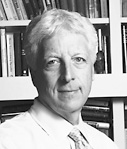The American research university has provided society with everything from lasers to the toothbrush to the origins of computer science, yet it is misunderstood and in danger of losing its capacity to drive economic progress.
That is the contention of author Jonathan Cole, John Mitchell Mason Professor of the University, and emeritus provost and dean of the facilities at Columbia University. He will present the lecture “Can Graduate Education Survive as We Know It?” at 4 p.m. April 5 in the Rackham Amphitheatre as part of the ongoing Rackham Centennial celebration.

Photo courtesy New York Times.
“We’re marking a century of graduate education at Rackham,” says Rackham Assistant Dean John Godfrey. “That century of graduate education has taken place concurrently with the growth of U-M to becoming among the greatest public research universities in the world. Graduate students working with faculty have pushed ahead frontiers of basic knowledge and have worked to make important practical discoveries.”
Cole celebrates American graduate students in his most recent book, “The Great American University.” He maintains that while America’s universities have become the envy of the world for their creative energy and production of transformative knowledge, few understand their pre-eminence.
“I think we’re a bit timid about defending these universities. For all of their strengths, we’re constantly in a defensive mode as to why tuition is what it is; we rarely tell why universities are critical for the future of the nation,” Cole says.
In tracing the origins and the evolution of the nation’s great universities, Cole says a transformation from sleepy colleges at the turn of the 20th century into powerful institutions that continue to generate new industries was enabled by a competitive system that invested public tax dollars in university research and students while granting universities autonomy.
But today, state support for universities is dwindling. Cole says the value of research universities for the greater public good needs to be promoted more effectively, as most Americans focus on undergraduate education.
Cole suggests that research universities produce targeted advertising about the value they provide, and why they are worth investment by the federal government and the general taxpayer. He says institutions provide a “balance of trade that is a source of genuine envy around the world. These great public and private institutions have enormous impact on people without them knowing it.”
“We have to saturate radio programs, and television sports,” Cole says, adding he is producing a radio show on education for National Public Radio.
Cole says it would be a catastrophe if public university funding drops to a point to make it impossible to compete with private institutions. “We’re on the brink of hitting that point. These universities like Michigan produce more Ph.D.s than the privates. They are a source of a tremendous amount of the discoveries I’m talking about,” he says.
Godfrey says a prime example of one such advancement took place in the 1920s, when David Dennison, as a graduate student in physics, became among the very first US scientists to be interested in the new field of theoretical physics. Through his post-doctoral studies in Europe, and during his years as a faculty member in the Department of Physics, Dennison played an important part in introducing leading-edge quantum mechanics research to U-M and to the United States.
“Our graduate students are driven to excel, to develop new knowledge and to solve complex problems. An important role of the graduate school is to help incite and encourage innovation and advancement in graduate education to meet changing needs, and to help support faculty and graduate students as they seek to be the very best in the world,” Godfrey says.
Cole says in addition to strongly trumpeting their value to the general public, research universities also need to promote innovation in education. Such innovations should include the development of master teachers who effectively can reach students both directly and through technology, he says.

